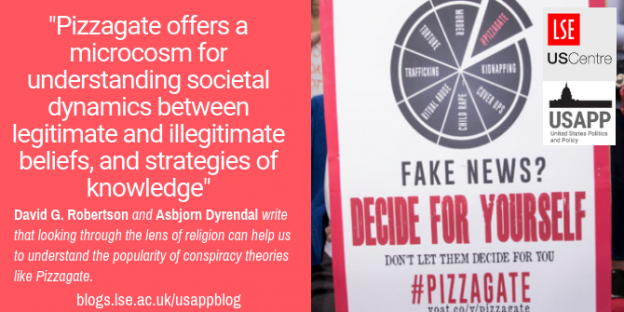David G. Robertson has a new piece out over at the LSE’s blog on United States Policy and Politics blog, discussing his work on the intersections of religion and conspiracy theories. Read the whole thing here.
Conspiracy theories rarely lead to violence; with the main exception being 2016’s Pizzagate which culminated in a gunman threatening a pizza restaurant which he believed was a front for a satanic paedophile ring. David G. Robertson and Asbjorn Dyrendal unpack some of the reasons why conspiracy theories such as Pizzagate can gain ground so rapidly, citing links to the “satanic panic” of the 1990s. They also point to links with wider apocalyptic narratives of right-wing conspiracist groups, narratives which are often also reflected in religion.

